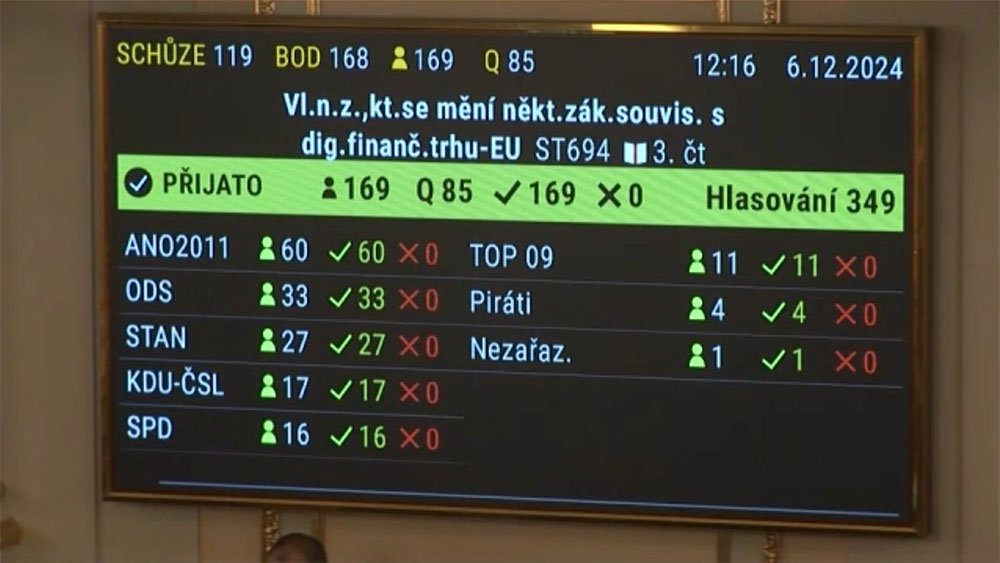The Czech Republic has enacted a new law exempting bitcoin and other digital assets from capital gains tax, provided they are held for over three years.
The law was approved by the Czech Parliament on December 6 and will come into effect on January 1, 2025. This will simplify bitcoin taxation, encourage long term investments and make the country more Bitcoin friendly.
Under the new rules individuals won’t have to pay capital gains tax on digital assets sold after 3 years or more.
The law also states that digital asset transactions under 100,000 CZK (approximately $4,200) per year don’t need to be reported. This will be a big tax relief for long term bitcoin holders and aligns with existing tax exemptions for securities in the country.
Pavol Rusnak, co-founder of SatoshiLabs, said that the amendment was passed with 169 votes on December 6 and was almost unanimous.

Prime Minister Petr Fiala called it a modernization. He said on X:
“A new time test will apply, which guarantees that if you hold cryptocurrencies for more than three years, their sale will not be taxed. We make life easier for people and support modern technologies.”

“This means that, for example, buying coffee with Bitcoin […] will no longer be a tax transaction,” Fiala added.
The law will have retroactive effect, so digital assets acquired before 2025 can qualify for the exemption if sold under the conditions in later years.
The Czech government is encouraging patience and stability in the bitcoin market by rewarding long term holders. With the exemption in place, investors will hold onto their bitcoin rather than trade frequently.
Kristian Csepcsar, financial analyst, called the new law a reward for long term believers in Bitcoin.
Besides individual investors, the new framework also addresses the problems of Bitcoin-related businesses.
Banks in the Czech Republic can no longer discriminate unfairly against companies that deal with Bitcoin or other digital assets. This means businesses can access financial services without unnecessary obstacles, providing a level playing field for these companies.
Czech Republic’s reforms match the upcoming EU’s Markets in Crypto-Assets (MiCA) framework which will soon become fully effective. MiCA will standardize digital asset regulations across the EU, and the tax exemptions are to fit into this broader regulatory landscape.
“We’ve taken an important step so that crypto business in the Czech Republic can function and continue to develop,” a government official said at a press conference.
While the law is hailed as a big progress, it still leaves many questions open.
For example there is no clear guidance on how to verify ownership duration. And there is no explanatory memorandum which would provide taxpayers and practitioners with technical details of the law.
Tax experts also point out that there is no definition of digital assets in the Czech Income Tax Act. This can lead to interpretation on which assets are eligible for the exemption.
The Czech Republic is moving ahead as countries around the world are dealing with bitcoin taxation. US has a capital gains tax of 15-20% on bitcoin-related profits depending on the income bracket.
Italy proposed to increase digital-asset tax to 42% and then scaled it back to 28% after public backlash.
On the other hand Switzerland and UAE have already created tax friendly environment for bitcoin investors with incentives for innovation and long term holding.
Despite the challenges, the Czech Republic has taken a big step into the digital age. By exempting long term bitcoin holding from taxes and treating businesses fairly, the country is positioning itself as a forward thinking player in the global Bitcoin space.
The new rules will benefit investors and attract more innovation and investment into the country’s digital asset sector. As the global bitcoin market evolves, the Czech Republic’s approach can be a model for other countries to balance regulation with innovation.










